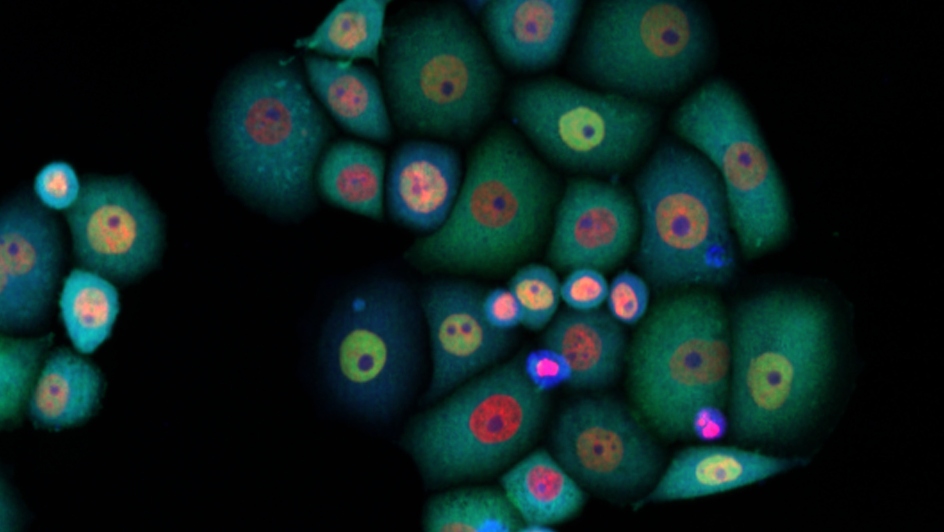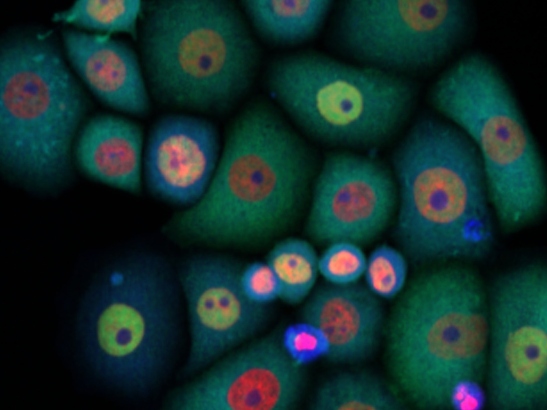
Image: human breast cancer cells stained for DNA (red). New treatments aim to take advantage in cancer cells' DNA repair mechanisms. Credit: Julia Sero/ICR
Scientists at The Institute of Cancer Research, London, are teaming up with small molecule neoantigen immuno-oncology company NeoPhore to develop new potential cancer drugs.
Under a new strategic research collaboration, an ICR team led by Professor Chris Lord will investigate the effect of NeoPhore’s inhibitors on tumours in the laboratory.
The inhibitors are small molecules that target proteins involved in DNA mismatch repair (MMR), an important process in cells that corrects mistakes that are introduced to DNA when they divide.
Research by NeoPhore suggests that these first-in-class ‘MMR modulators’ can replicate clinical anti-tumor responses seen with existing immunotherapies (such as anti-PD1/L1 treatments) in patients with microsatellite unstable (MSI) tumours that intrinsically lack MMR function.
Scientists in the Division of Breast Cancer Research, where Professor Lord works, are global pioneers in the development of new breast cancer drugs – including famously developing the PARP inhibitor olaparib, following an early collaboration with the company KuDoS.
ICR researchers showed that olaparib – which also targets a mechanism of DNA repair – is especially effective in tumours with mutations in the BRCA1 and BRCA2 genes, and led early clinical trials that ultimately have led to the drug’s approval in a range of breast and prostate cancer types.
Researchers in the Division of Breast Cancer are continuing to seek new industry collaborations to develop innovative new cancer treatments. Current opportunities to work with us include in the development of cancer vaccines or immunotherapies to overcome resistance to PARP inhibitors or chemotherapy.
Professor Chris Lord, Professor of Cancer Genomics and Deputy Head of the Division of Breast Cancer Research, Deputy Leader of the Breast Cancer Now Toby Robins Research Centre, and Cancer Research UK Gene Function Team Leader at the ICR, said:
“We are excited about this new collaboration with NeoPhore. Identifying new ways of treating cancer is central to much of what we do here at the ICR and this project will focus on exactly that.
“Our hope is that by working with NeoPhore, we can find new vulnerabilities in cancer cells that can be targeted by drugs that NeoPhore have discovered.”
Dr. Matthew Baker, Chief Executive Officer of NeoPhore, said:
“We are excited to collaborate with Prof. Chris Lord who is a prominent and respected researcher in the field. Access to his team's scientific expertise will allow us to investigate new mechanisms of action of the MMR pathway in a variety of solid tumours.
“We believe that this impactful collaboration has the potential to broaden the use of MMR inhibitors beyond neoantigen generation. Ultimately the results of the collaboration have the potential to provide significant patient benefit in a variety of solid tumour indications.”
